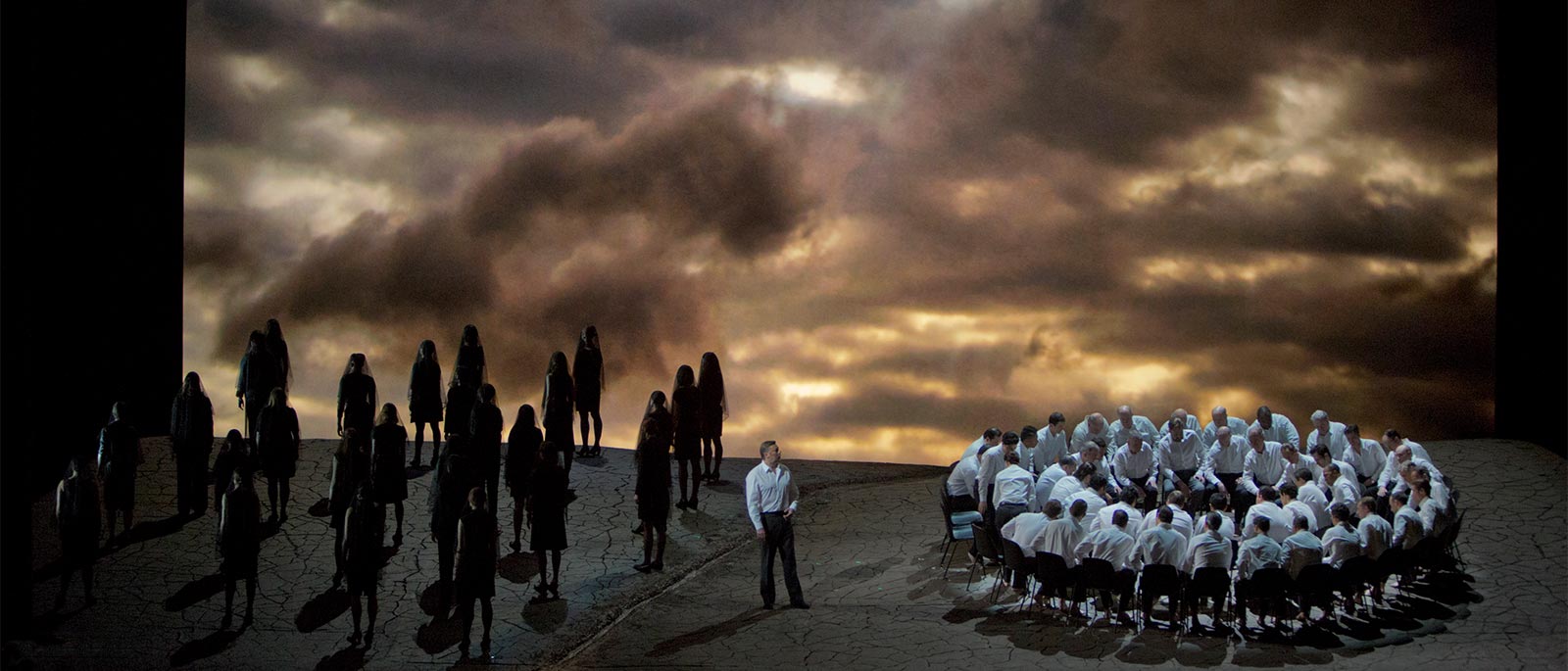
Transcendental Meditations
Ever since its premiere in 1882 at Wagner’s custom-built theater in Bayreuth, Parsifal has engendered a kind of all-consuming devotion bordering on the fanatic. Considered the composer’s “spiritual” opera, Parsifal tells the story of a young man on a quest for the Holy Grail. The words that are inevitably used to describe it are “meditative,” “transcendent,” “mystical”—all apt descriptions of a work of art designed to immerse audiences with its sweeping score, story of compassion and renunciation, and echoes of Buddhism (of which Wagner had recently become enamored). Here is some evocative commentary from a handful of notable devotees of the composer and his final masterpiece.
“We wander with Parsifal in our heads through empty streets at night, where the gardens of the Hermitage glow with flowers like those other magic blossoms, and sound melts into color, and color calls out for words, where, in short, we are lifted out of the ordinary world and allowed merely to breathe and see—it is here that we realize how thin are the walls between one emotion and another; and how fused our impressions are with elements which we may not attempt.”
—Virginia Woolf
“Probably my favorite opera is Parsifal—I think it is one of the most spiritually beautiful of all operas. Wagner has given us poetry, he has given us mythology, aspects of Christianity, and some of the most beautiful melodic themes. In opera there’s always such tragedy and such sorrow, but in Parsifal we have redemption.”
—Patti Smith
“I cannot think of it without feeling violently shaken, so elevated was I by it, so deeply moved. Other really good music, which I have at other times heard and loved, seems, as against this, a misunderstanding!”
—Friedrich Nietzsche
“When I came out of the Festspielhaus, I realized that I had undergone the greatest and most soul-searching experience of my life and that I would carry that experience with me for the rest of my days.”
—Gustav Mahler
“My general appreciation of music was not, in fact, much altered. ‘Music’ was one thing, ‘Wagnerian music’ quite another, and there was no common measure between them; it was not a new pleasure but a new kind of pleasure, if indeed ‘pleasure’ is the right word, rather than trouble, ecstasy, astonishment, ‘a conflict of sensations without name.’”
—C.S. Lewis
“Finally, out of the darkness and distance and mystery, soft rich notes rose upon the stillness, and from his grave, the dead magician began to weave his spells about his disciples and steep their souls in his enchantments. There was something strangely impressive in the fancy which kept intruding itself that the composer was conscious in his grave of what was going on here, and that these divine souls were the clothing of thoughts which were at this moment passing through his brain, and not recognized and familiar ones which had issued from it at some former time.”
—Mark Twain
“If you’ve never heard the music of Richard Wagner, if you’ve never encountered his dramas, I would urge you, because we’re only on this planet once, to give it a try. I still believe, as firmly as I believe anything, that his work is important and is on the side of the angels. It is, fundamentally, good.
—Stephen Fry
“I went in a skeptic and came out a big-eyed, weak-kneed wow-sayer. What musical mastery! Aha! So that was what all the fuss was about! I finally got it!”
—Margaret Atwood
“I like Wagner’s music better than any other. It is so loud that one can talk the whole time without people hearing what one says. That is a great advantage.”
—Oscar Wilde
“When I first heard Parsifal at Bayreuth, I cried for two weeks. Then I became a musician.”
—Max Reger
“Parsifal is a piece that escapes all attempt at simplification, escapes all reductions. I think it elevates all of us still. Sitting in a theater and watching Parsifal is something that makes us wiser and more intelligent, more sensitive to our own nature.”
—François Girard
“In a way, the experience of Parsifal is akin to that of a no-hitter in baseball. It is the very pinnacle for the devoted fan, who writhes in ecstasies of tension and delayed gratification. For all its static nature and its otherworldliness, there is little that is obscure in the score, and it can be appreciated by any open-minded operagoer with the ability to sit still for a few hours.”
—William Berger
“What are the rest of us but mere mandolin strummers? This tremendous music destroys us. It makes us incapable of composing anymore.”
—Giacomo Puccini
“I dig Strauss and Wagner. Those cats are good.”
—Jimi Hendrix